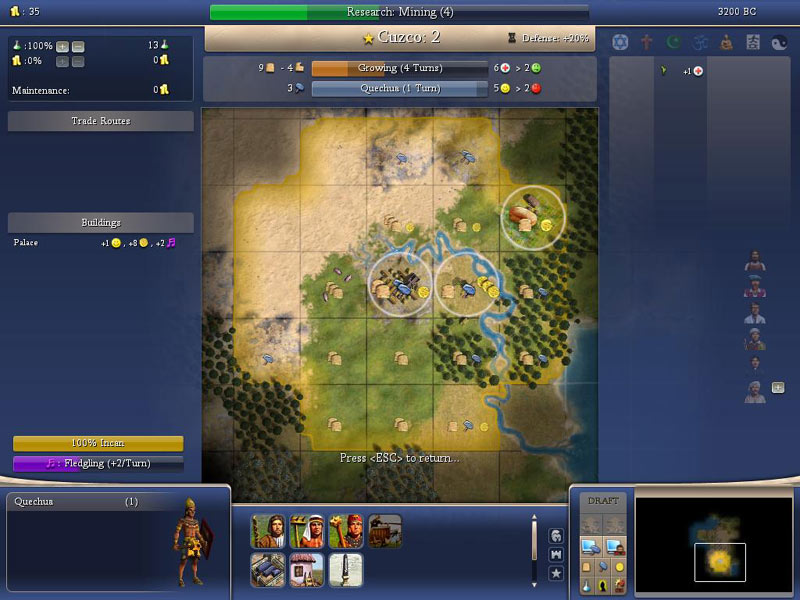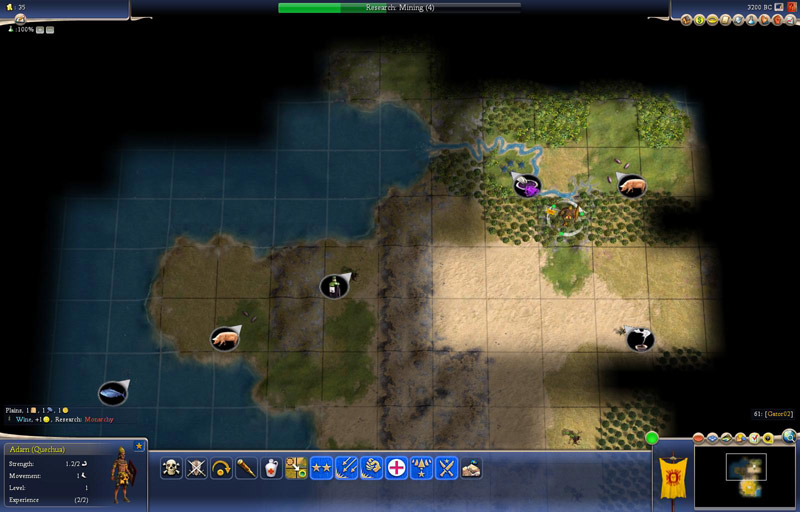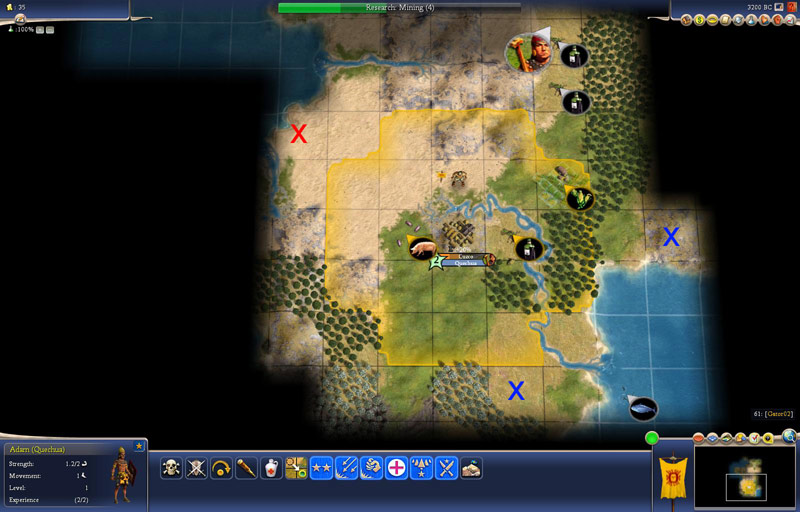bradleyfeanor
King
DJMGator13 said:Roster
bradleyfeanor
Gator
Bede
Bezhukov
leif
Sounds good. When everyone is ready, just say "Go" and let me know how many turns to take.

Bezhukov said:My main concern is the turns spent building Oracle are turns we can't work the high food bonus tiles without growing into unhappiness. Any chance of chopping Oracle in our second/third city to avoid this?
Yes, I would prefer to chop the Oracle in our second or third city. I suspect we will be finishing CoL and chopping it out around 1300bc, give or take a few hundred years. Although if we find more FPs, gold or gems around, it could be a good bit sooner than that.
Obormot said:With bureaucracy, cottages and academy it is possible to discover machinery in the BCs. But i guess you'll also need astronomy if it is continents. You might also need some more advanced military tech later. Are you going to use great people to learn techs like bradleyfeanor did in 4otm2?
I was thinking it might be worthwhile to use some great scientists for techs enroute to Astronomy. Since we aren't philosophical in this game, I definitely would prefer a tech path that centers around great scientists, as the other kinds of great people will take too long to generate (Great Library is wonderful for cranking out scientists). If stone happens to show up nearby though, then a push for engineers like in my GoTM2 game would probably be a strong strategy.
bede said:And I just realized that the hill town will give us pulled pork and cornbread, even better.
Yum. Although I'll take my pork another way: hamhocks and lima beans, turnip greens and bacon. The cornbread can stay as is. Good ol' southern fare.
lief erikson said:Next builds are a couple of Quechua followed by a settler?
I was leaning more toward worker then Quechua until we grow to size 4, then worker, settler. But like Obormot says, it will depend a great deal on what terrain and AIs are around us. I am also a big fan of worker stealing when the opportunity presents itself. We have to be careful about that on a continents map though: we wouldn't want to alienate our only neighbor before we trade with them!
The 1300 Oracle date I listed above uses the following tech path: TW, Pottery, Mining, BW, AH, Writing, Meditation, Priesthood, CoL. After that I suspect we will want another worker tech or to head straight for alphabet.
Edit: I agree that sending the Quechua northward to find out more about the fresh water is a good idea, unless he needs to head SW to pop a hut just beyond the reach of our cultural borders.







 . At least there is a fish down there.
. At least there is a fish down there.


